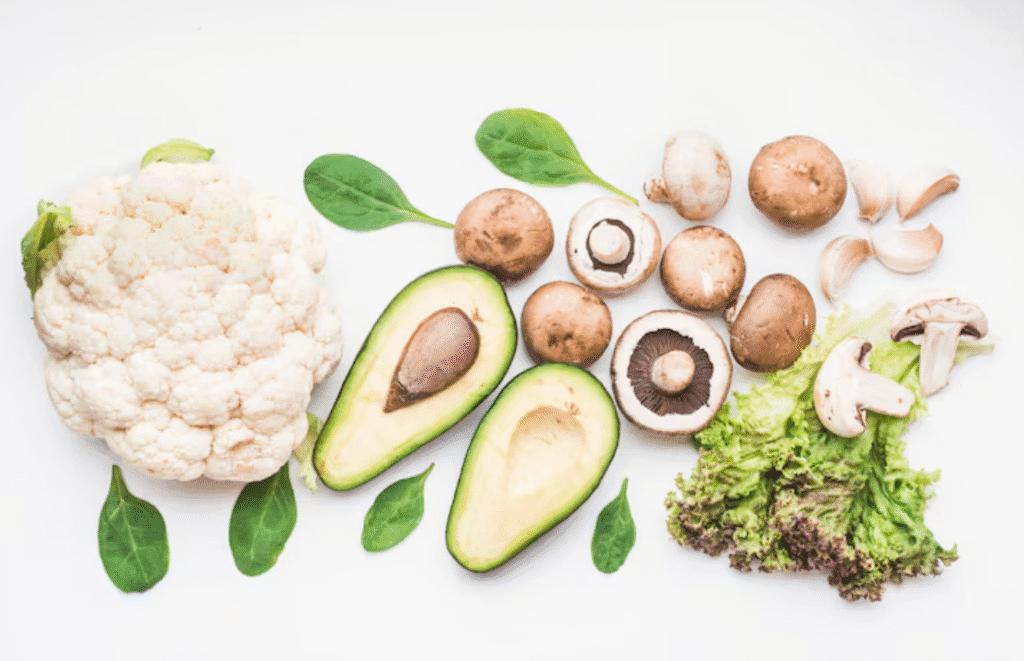Veganism isn’t just a diet—it’s a powerful ethical stance. At its core, the vegan lifestyle is rooted in a deep respect for animals and a desire to avoid contributing to their suffering. While many people turn to plant-based eating for health or environmental reasons, animal rights remain the original and central motivation for many vegans.
In this article, we explore the ethical foundations of veganism, the realities of animal agriculture, and the growing movement toward cruelty-free, compassionate living.
🐄 1. The Core Principle: Avoiding Animal Exploitation
Veganism is defined by The Vegan Society as “a philosophy and way of living which seeks to exclude—as far as is possible and practicable—all forms of exploitation of, and cruelty to, animals for food, clothing or any other purpose.”
This means:
- No meat, dairy, eggs, honey, or other animal products
- No leather, fur, wool, or silk
- No cosmetics tested on animals
- Support for animal-free alternatives in all areas of life
At its heart, veganism is about respecting the autonomy and lives of all sentient beings, regardless of species.
🏭 2. The Truth About Factory Farming
Factory farming—or industrial animal agriculture—is one of the most pressing ethical concerns driving the vegan movement. Billions of animals are raised in intensive, confined conditions to meet global demand for meat, dairy, and eggs.
Common practices include:
- Battery cages for egg-laying hens, barely larger than the bird’s body
- Gestation crates for pigs, preventing them from turning around
- Forced insemination and constant pregnancies for dairy cows
- Debeaking, tail docking, and castration without anesthesia
Most of these animals live their entire lives without ever feeling grass, sunshine, or freedom. They are treated as commodities, not living beings.
🔎 Even products labeled “free-range” or “humane” often fall short of meaningful animal welfare.
🐣 3. Ethical Concerns in the Egg and Dairy Industry
Even vegetarian products like eggs and dairy involve significant animal suffering:
- Egg industry: Male chicks (who can’t lay eggs) are routinely killed at birth, often through grinding or gassing.
- Dairy industry: Cows are repeatedly impregnated, and their calves are taken away within hours to prevent milk-sharing. Many calves are slaughtered as veal.
These industries depend on controlling and disrupting natural animal behaviors, leading many people to conclude that consuming these products is inherently unethical.
🐾 4. Animals as Sentient Beings
Modern science confirms what animal lovers have long known: animals are sentient, capable of feeling pain, fear, joy, and love.
Species like pigs, cows, chickens, and fish have been shown to:
- Form bonds and social hierarchies
- Use tools and solve problems
- Grieve the loss of companions
- Exhibit empathy and distress
Recognizing this intelligence and emotional capacity challenges the notion that animals are ours to use—and strengthens the ethical argument for veganism.
💔 5. Speciesism: The Injustice of Arbitrary Discrimination
Speciesism is the assumption that one species (usually humans) is superior to others and has the right to exploit them.
Consider:
- We love dogs but eat pigs.
- We protect elephants but hunt deer.
- We’re outraged by animal cruelty—but fund it unknowingly through our diets.
Veganism challenges this double standard, advocating for equal consideration of interests—not equality of ability, but the right not to suffer.
🧼 6. Cruelty-Free Living Beyond the Plate
Ethical vegans extend their compassion beyond food:
- Choosing vegan, cruelty-free personal care products
- Wearing clothes made from synthetic or plant-based materials
- Avoiding entertainment that exploits animals (e.g., circuses, marine parks)
The goal is not perfection, but intentional avoidance of harm whenever possible.
🌍 7. The Power of Everyday Choices
Going vegan might seem like a small act in the face of global injustice, but every meal is a vote—for kindness, for justice, and for a more compassionate world.
Choosing plant-based:
- Saves lives (an average vegan spares ~200 animals per year)
- Rejects systems of cruelty
- Sends a powerful message to industries and policymakers
🗣️ 8. Advocating for Change
Ethical vegans often engage in:
- Education and outreach
- Animal sanctuary support
- Protests and campaigns
- Legislative advocacy for animal protection laws
Through activism, many vegans seek not just personal alignment, but systemic change in how society treats animals.
❤️ Final Thoughts: A Lifestyle of Compassion
Veganism isn’t about being perfect—it’s about doing your best to live in alignment with your values of kindness, respect, and nonviolence. By refusing to participate in the exploitation of animals, vegans stand for a more ethical and just world—not just for humans, but for all sentient beings.
Veganism and Animal Rights: The Ethics Behind the Lifestyle
Veganism isn’t just a diet—it’s a powerful ethical stance. At its core, the vegan lifestyle is rooted in a deep respect for animals and a desire to avoid contributing to their suffering. While many people turn to plant-based eating for health or environmental reasons, animal rights remain the original and central motivation for many vegans.
In this article, we explore the ethical foundations of veganism, the realities of animal agriculture, and the growing movement toward cruelty-free, compassionate living.
🐄 1. The Core Principle: Avoiding Animal Exploitation
Veganism is defined by The Vegan Society as “a philosophy and way of living which seeks to exclude—as far as is possible and practicable—all forms of exploitation of, and cruelty to, animals for food, clothing or any other purpose.”
This means:
- No meat, dairy, eggs, honey, or other animal products
- No leather, fur, wool, or silk
- No cosmetics tested on animals
- Support for animal-free alternatives in all areas of life
At its heart, veganism is about respecting the autonomy and lives of all sentient beings, regardless of species.
🏭 2. The Truth About Factory Farming
Factory farming—or industrial animal agriculture—is one of the most pressing ethical concerns driving the vegan movement. Billions of animals are raised in intensive, confined conditions to meet global demand for meat, dairy, and eggs.
Common practices include:
- Battery cages for egg-laying hens, barely larger than the bird’s body
- Gestation crates for pigs, preventing them from turning around
- Forced insemination and constant pregnancies for dairy cows
- Debeaking, tail docking, and castration without anesthesia
Most of these animals live their entire lives without ever feeling grass, sunshine, or freedom. They are treated as commodities, not living beings.
🔎 Even products labeled “free-range” or “humane” often fall short of meaningful animal welfare.
🐣 3. Ethical Concerns in the Egg and Dairy Industry
Even vegetarian products like eggs and dairy involve significant animal suffering:
- Egg industry: Male chicks (who can’t lay eggs) are routinely killed at birth, often through grinding or gassing.
- Dairy industry: Cows are repeatedly impregnated, and their calves are taken away within hours to prevent milk-sharing. Many calves are slaughtered as veal.
These industries depend on controlling and disrupting natural animal behaviors, leading many people to conclude that consuming these products is inherently unethical.
🐾 4. Animals as Sentient Beings
Modern science confirms what animal lovers have long known: animals are sentient, capable of feeling pain, fear, joy, and love.
Species like pigs, cows, chickens, and fish have been shown to:
- Form bonds and social hierarchies
- Use tools and solve problems
- Grieve the loss of companions
- Exhibit empathy and distress
Recognizing this intelligence and emotional capacity challenges the notion that animals are ours to use—and strengthens the ethical argument for veganism.
💔 5. Speciesism: The Injustice of Arbitrary Discrimination
Speciesism is the assumption that one species (usually humans) is superior to others and has the right to exploit them.
Consider:
- We love dogs but eat pigs.
- We protect elephants but hunt deer.
- We’re outraged by animal cruelty—but fund it unknowingly through our diets.
Veganism challenges this double standard, advocating for equal consideration of interests—not equality of ability, but the right not to suffer.
🧼 6. Cruelty-Free Living Beyond the Plate
Ethical vegans extend their compassion beyond food:
- Choosing vegan, cruelty-free personal care products
- Wearing clothes made from synthetic or plant-based materials
- Avoiding entertainment that exploits animals (e.g., circuses, marine parks)
The goal is not perfection, but intentional avoidance of harm whenever possible.
🌍 7. The Power of Everyday Choices
Going vegan might seem like a small act in the face of global injustice, but every meal is a vote—for kindness, for justice, and for a more compassionate world.
Choosing plant-based:
- Saves lives (an average vegan spares ~200 animals per year)
- Rejects systems of cruelty
- Sends a powerful message to industries and policymakers
🗣️ 8. Advocating for Change
Ethical vegans often engage in:
- Education and outreach
- Animal sanctuary support
- Protests and campaigns
- Legislative advocacy for animal protection laws
Through activism, many vegans seek not just personal alignment, but systemic change in how society treats animals.
❤️ Final Thoughts: A Lifestyle of Compassion
Veganism isn’t about being perfect—it’s about doing your best to live in alignment with your values of kindness, respect, and nonviolence. By refusing to participate in the exploitation of animals, vegans stand for a more ethical and just world—not just for humans, but for all sentient beings.




